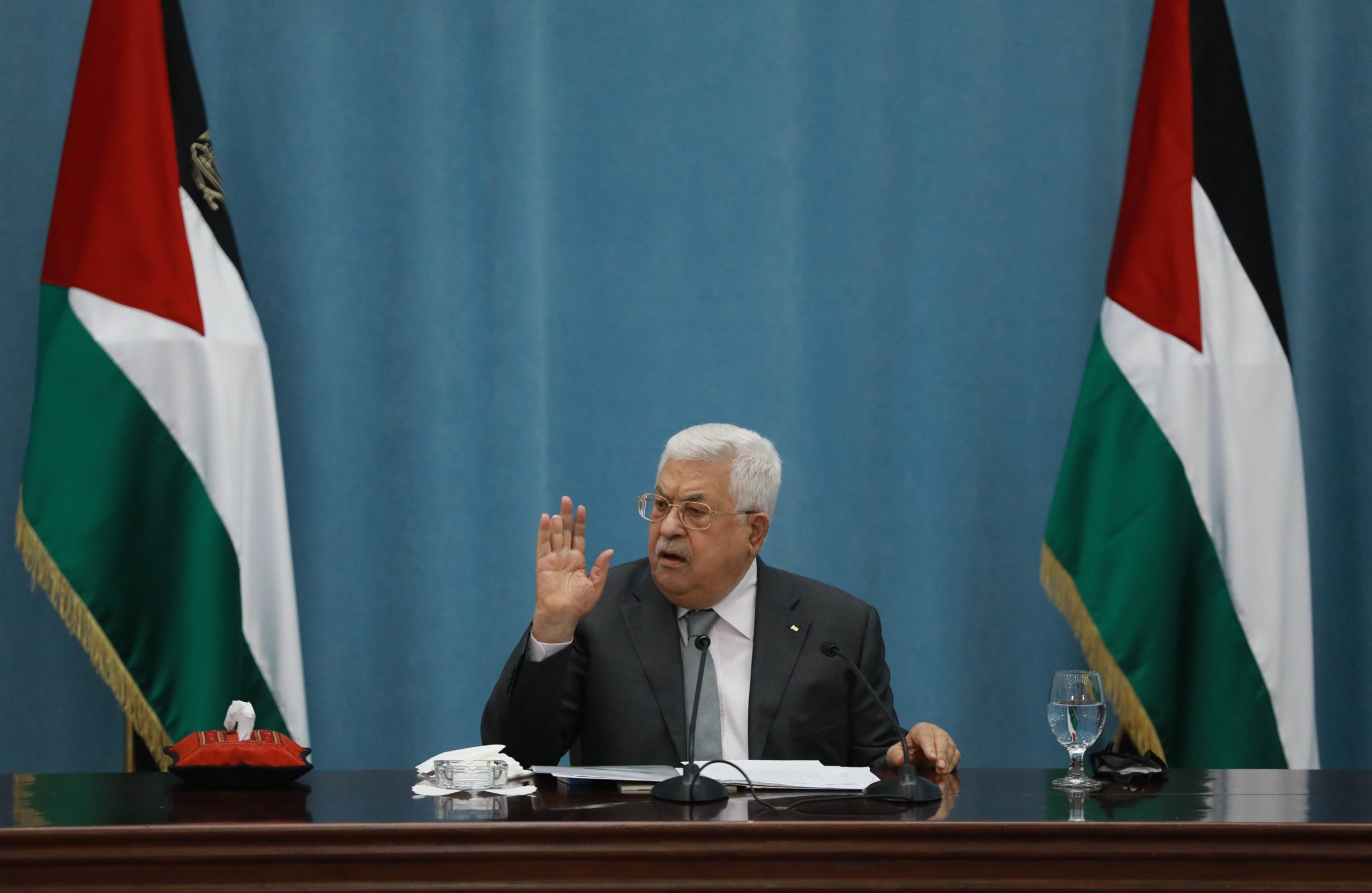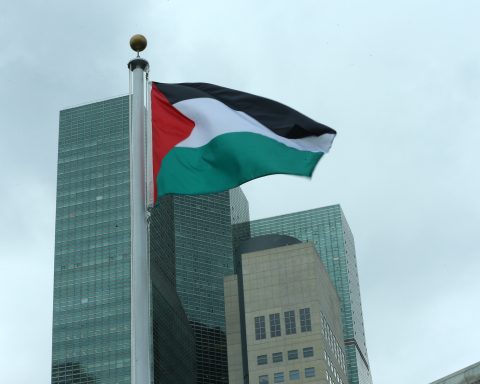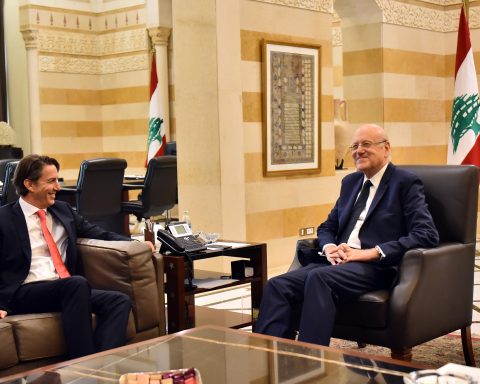Many abrupt meetings have been held recently between Israeli high-ranking officials and the Palestinian Minister for Civil Affairs, Hussein al-Sheikh, to discuss what were said to be economic “incentives” for the Palestinian people in the West Bank and the Gaza Strip. The meetings are coming amid internal strife inside Fatah regarding who should secure the Palestinian Liberation Organization’s (PLO) vacant positions.
It is easy to notice that there are two conflicting wings inside the Fatah movement, with the first wing representing Jibril Rajoub and Mahmoud al-Aloul, and the second going for Majed Faraj and Hussein al-Sheikh, as the latter appears to be the most likely candidate to replace the elderly Palestinian President Mahmoud Abbas.
The Rajoub-Aloul wing had a bigger chance to assume power in the post-Abbas era, but the two were harshly smeared in the period that followed Abbas’s decision to revoke the parliament and presidential elections slated for the months of May and July last year. Hence, they were accused by Fatah’s other wing of miscalculating the relationship with Hamas given the fact that the opinion polls were giving Hamas a higher chance of sweeping the parliament elections’ results.
Annulling the long-awaited elections was followed by many developments in the Palestinian street that densely hit the Palestinian Authority (PA)’s popularity and put its reputation at stake. Most importantly, the Israeli onslaught launched in Gaza in May 2021 following the Palestinian resistance’s move to defend the Sheikh Jarrah residents’ rights. Hamas has shown itself as the most influential Palestinian power that has the decision between war and peace, with the PA (Fatah) appearing helpless and incapable of safeguarding the Palestinian people’s rights. The PA’s image was also damaged following the assassination of the renowned opposition figure Nizar Banat, who was a very outspoken activist against the PA’s corruption and mismanagement.
These two developments not only damaged the PA’s image in Palestine but also raised US and Israeli concerns over the post-Abbas era, with the elections becoming an elusive choice, fearing of another legitimate rise for Hamas, let alone the national reconciliation. The Israeli plan is to contain Hamas’ accomplishments by giving more power to the intelligence-oriented wing of Fatah at the expense of the political-oriented one by hosting them (al-Sheikh and Faraj) in the closed-room meetings.
Since then, at the time when huge numbers of Fatah comrades were slamming the security coordination with Israel, this wing has been keen to sustain it as an accomplishment for the PA. This was unhesitatingly read by Israel, which decided to launch a group of economic facilitations (work permits, family unification, VIP cards) as awards given in the aftermath of Al-Shaikh’s meetings with the Israeli officials.
Sad to say that, this scenario was exactly carried out in the period before the death of the late Palestinian icon Yasser Arafat where the US and Israel were seeking to prefer a Fatah wing at another, mainly the wing who was embracing the peaceful means to end the conflict at the expense of the pro-Intifada leaders, embodied in Marwan Barghouti, who was slapped with a life sentence in the Israeli prison.
Six decades after the resurrection of the Palestinian revolution and three decades following the signing of the Oslo agreement, we have seen a rising elite from inside the PA — largely made up of bureaucratic officials, ex-Fatah leaders, and wealthy families — who prefers the Israeli occupation in the West Bank to remain, simply because their strategic interests are vastly linked to the Israeli occupation.
A very terrible example was seen only a week ago by the PA’s minister for local government, Majdi al-Saleh, when he commented on the miserable situation in the Gaza Strip. Al-Saleh held Hamas, not Israel, responsible for the ongoing suffering in the coastal enclave. Al-Saleh said it is Hamas to blame for the Israeli attacks over Gaza that paralyzed the road network there during the current winter. These statements were not shocking to a large sector of the Palestinian people, given the fact that there is a rising Palestinian elite that sees Israel as a friendly state, not an enemy anymore.
It is also seen in the high-security coordination between the two sides to put any uprising or Intifada out. We have dozens of examples of Palestinian activists who have been arrested or have arrest warrants from both the PA’s security agencies and Israeli forces. These crackdowns are not only targeting the Islamic groups of Hamas and Islamic Jihad, the other wing of Fatah and leftist groups were highly affected as well with these policies serving no one but the Israeli occupation and its expansionist policies in the West Bank.
Again, alas, Israel has extremely benefitted from the Palestinian rift between the Gaza Strip and the West Bank, over which a new political and social class was formed and directed to adopt decisions and policies that came in line with the Israeli interest. This class was given the power and influence to affect Palestinian internal politics and has the temerity to decide on behalf of Palestinians. They lack popular legitimacy because no free and transparent elections were held to bring them to power, but, regretfully, they are keen to get the US and Israeli support as an international legitimacy enabling them to rule the Palestinian people and divert their struggle. Will Palestinians be forgiven for that? Let’s see…!














